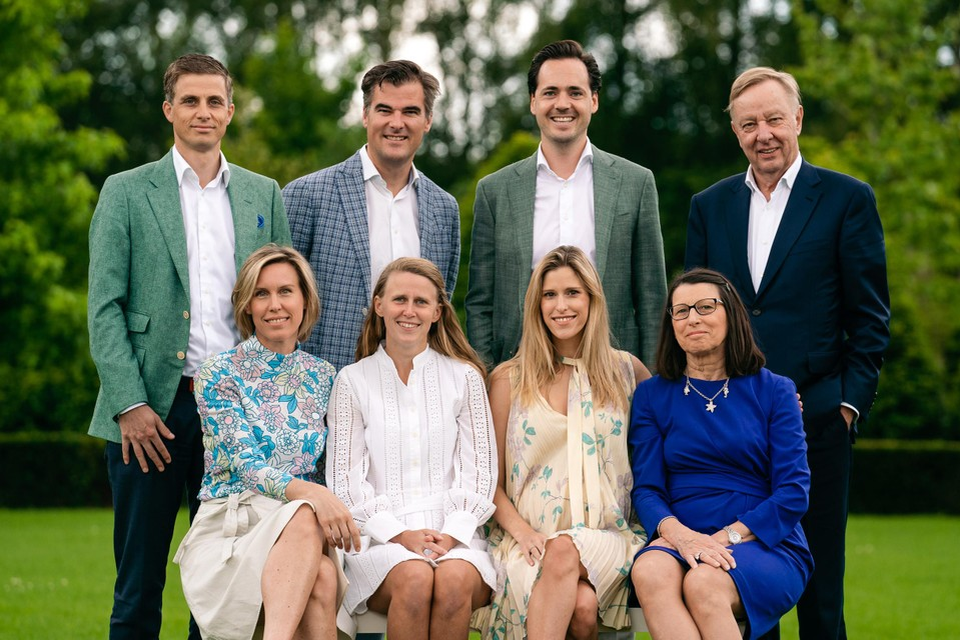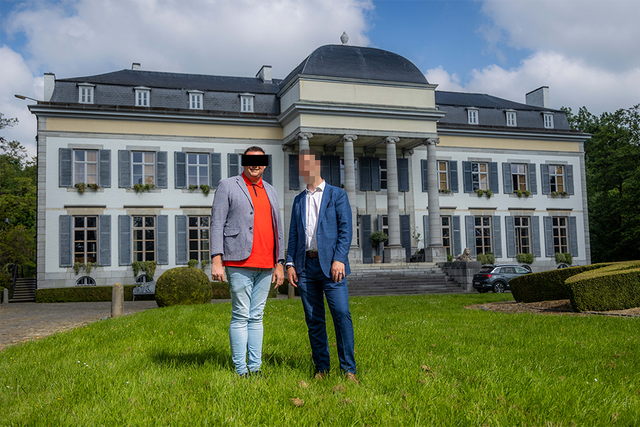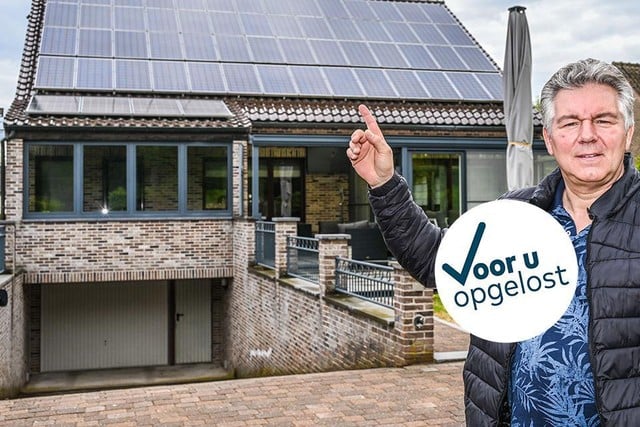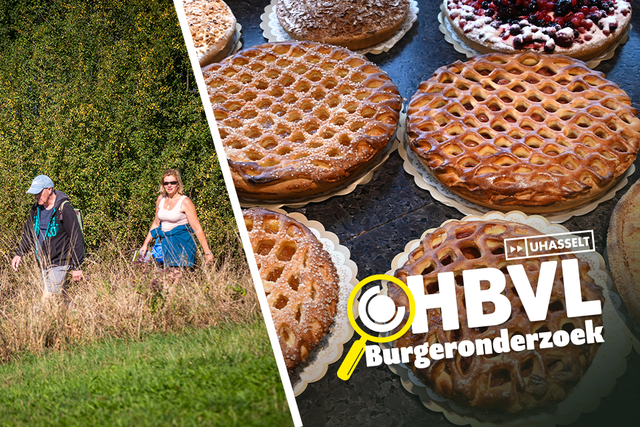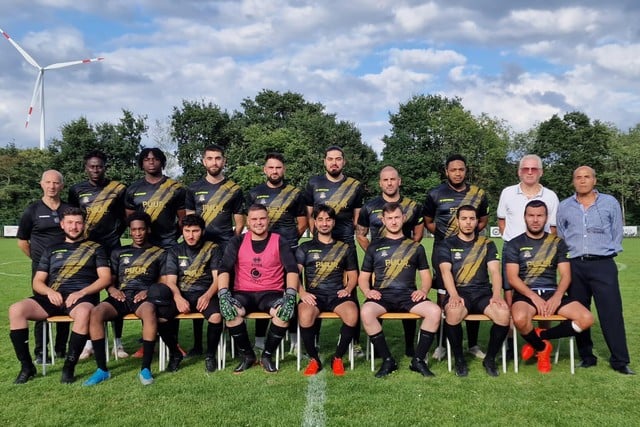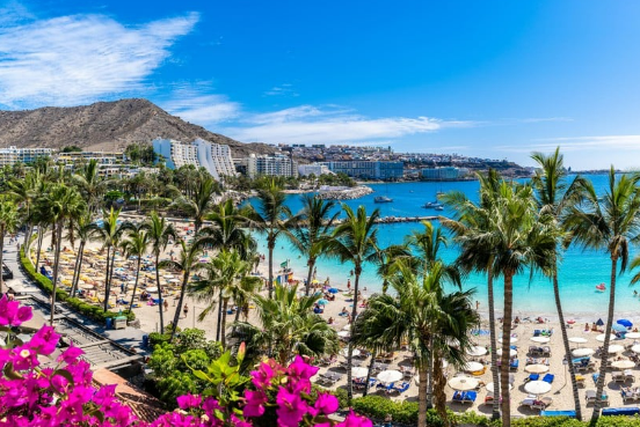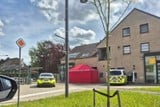“Men are better than women at some things. And vice versa.”
Hundreds of thousands of homes have windows and doors from Limburg-based Belisol. The business is now being run by the three Alen sisters and their spouses.
Hundreds of thousands of homes have windows and doors from Limburg-based Belisol. The business is now being run by the three Alen sisters and their spouses, but the story began forty-five years ago with an ambitious lawyer at the Hasselt Bar...
Patricia Alen and Nicolas Thiel unwind in the greenery of Bolderberg. Acorns are clearly experiencing a mast year and are covering their garden. The horses in the pasture behind come to take a look while grazing. Nothing here refers to the hectic nature of their family business. To the 100,000 Belisol windows and doors installed each year in Belgium, the Netherlands and France. Together with the two other Alen sisters and their spouses, the couple directs Group A, the company above the household names Belisol and KwadrO. What few people know: the story of Belisol began in the 1970s at the Hasselt Bar.
“My father Eugène was a young lawyer at the time and had to defend a client who was in the window and door business,” Patricia says. “He himself is someone with a commercial mindset and felt that this sector was being handled rather amateurishly, often by small sole traders. He then said goodbye to the legal profession and started working for these people because he saw potential in them. His point of view is that windows or doors are not just things to plug a hole in a wall, but that they can also be beautiful. You then need to be able to show that to your customer. This was why he came up with the idea of a showroom. Because he had a partner in Brussels, the first branch of Belisol was opened in Brussels. Antwerp and Hasselt soon followed. Showing people a wide choice was innovative and struck an immediate chord.”
There was no talk about anything other than windows and doors at home?
Patricia: “I was born the eldest daughter in 1979 and the company had started in 1977, so indeed all I ever knew was that the company was the talk of every meal. My mum Lieve immediately joined the company. Dad was the commercial brain, Mum did all the admin work. We were usually picked up quickly from school and often had to go with them to the office. That was on Genkersteenweg then, where the Hasselt branch is now located. We’d play at shop in the showroom there, using the windows as displays.” (laughs)
Has it always been clear to you and your two sisters that the family business beckoned?
Patricia: “Maybe that wasn’t equally obvious to all three of us, but we were involved in the business from an early age. Doing holiday work, helping out at open days, archiving files, replacing the telephone operator once... Later on, these became bigger projects. My sister Isabelle improved our calculation programme that way during her studies.”
Did you choose your studies based on the business too?
Patricia: “It didn’t feel like that, but in retrospect, I think yes, we were somewhat steered in that. All three of us went to law school and then we all chose a husband who was also a lawyer by training.”
So you met while studying?
Nicolas: “Yes, in Namur, where we did our Law degree. That knowledge of French has proven to be a real asset. By the way, try finding good bilingual staff today. Then we both went to Leuven and on Erasmus in Germany.”
Patricia: “I had taken a little too much advantage of the freedom of student life in the first year and had to redo it. (laughs) I’m a year older, so then we were in the same year and noticed each other at cafés.”
And right after studies, you both entered the family business?
Patricia: “While we were still studying, even. We did an extra year of tax law in Brussels, but that wasn’t really intensive. At that time, in 2002, two younger entrepreneurs wanted to start up a Belisol franchise in Asse. Father asked me to help them a little with rates and quotes. That was an immediate success and I soon started working there every day.”
Nicolas: “At the Leuven branch at the time, a salesman was summarily fired for something he had done. However, that man’s calendar was full of appointments. My father-in-law then called me to take those over. The first appointment was the next day. So I went straight into it, not knowing anything about windows and doors. Then after a few clients, I could actually sell something, and in retrospect, that was actually the best possible learning experience.”
You come from a family of self-employed people yourself?
Nicolas: “My parents had an antique store in Knokke. When antiques began to lose their appeal, they were flexible enough to turn it into an interior design store as well. They were always at work. Especially at weekends and in school holidays, when the seaside was the busiest.”
How big was Belisol when you got in?
Nicolas: “It was just the period when our division in France was starting up. That was our next task: to go and support our people there. The Netherlands had started ten years earlier and France was logically the next step in terms of expansion. My in-laws are also true lovers of the country – every family holiday went there. We did purposely close some branches again, because our expectations for our franchisees are really high. Sometimes, including because of our rapid expansion, you do clash with the so-called French mentality. We ended up retaining only the best store managers. That was a conscious choice, because in the meantime we had launched KwadrO in Flanders. Closer to home, you can still implement more of your own thinking. Today, France still accounts for ten percent of sales, Belgium for 55 and the Netherlands, where we have grown strongly in recent years, for 35 percent. We now have 91 branches in three countries.”
You may be the market leader, but you are in a very competitive industry. Anyone turning on their radio today will be overwhelmed with advertisements for windows, doors and blinds.
Patricia: “It does also have to do with the time of year. September/October and February/March are the peak months for us. In the summer, people don’t do any work on their homes, so the requests come in right after that. Then in the winter, they find that they could do better in terms of warmth and insulation, and in the spring the orders come back in. But the competition is indeed great and there is so much copycat behaviour that sometimes you have to think for a moment, ‘well, what brand was this radio spot from again?’ Of course, our challenge is to remain distinctive and always come up with something new.”
So how do you do that?
Nicolas: “You do that especially during the process that the client goes through. In construction, the bar in terms of communication is not always very high. Arriving at the appointed day and time is almost an achievement in itself. Conversely, there is usually a gap of several months between an quote and an installation. For example, positive information during that period already comes across as much more professional. If something is late, explain to your customer why that is.”
A major frustration of builders and renovators is often the difficulty in getting errors fixed afterwards.
Nicolas: “In our strategic exercise for the following years, that point was indeed very prominent. We have to be honest about that – we’ve had some lapses in that area in recent years. Through rapid expansion, by not being attentive enough to it. Now, that’s always the first item on our agenda: how are our reviews, how many of our customers are satisfied and what do we need to do to still satisfy the dissatisfied customer, who will always be there.”
We do find ourselves in strange times for your sector as well. First corona and now the energy crisis.
Patricia: “After the initial shutdown during the corona crisis, we suddenly got a huge spike in orders, almost too many. People were at home so much that they really got to know their home. Everyone wanted big openings, indoor-outdoor experiences, big sliding windows, etc. Then again, it was a beautiful summer. This high demand in turn created a problem with the supply of materials. In the beginning, customers were understanding, but after a few months we sometimes got the angry response that we couldn’t keep hiding behind corona.”
Nicolas: “Demand has not stopped since then. We actually got on the right side twice. Because of the energy crisis, we are now part of the solution. There is no point in saving energy through LED bulbs, solar panels or heat pumps if your windows are not insulated. The orders keep coming. Today, of course, the challenge for the customer is the cost, because the price of materials has gone up tremendously. We try to buffer that temporarily as a middleman a little bit, but of course we can’t manage not to pass on anything at all. What we mainly do now is renovate entire houses. Therefore, the payback period for our products has never been so short.”
Is your production still done primarily at Profel in northern Limburg?
Nicolas: “Profel mainly does production for the Dutch market – for Belgium, this is more about products specific to Belisol – but we do also have other suppliers. Seventy percent of our production does come from Belgium; the rest comes from Poland and a small part from Spain. We always aim to have exclusive products produced, so you’re still working with progressive companies. You used to find them only around here, but now more in Eastern Europe. Something coming from Poland used to have a negative connotation, but many people would open their eyes if they saw the production there. They’re often more advanced there, thanks to some very major investments.”
How often does a Belgian change windows?
”We make 95 percent of our sales in renovations, not new builds. The lifespan of our products is usually between 25 and 30 years. We sold 100,000 windows and doors last year alone, at an average of six per customer. So our products really are in hundreds of thousands of homes.”
Last year, there was a photo in the newspaper with the whole family announcing the definitive generational change. The three daughters and sons-in-law took over the business. How did that process go?
Nicolas: “Of course that took years, but in my father-in-law’s eyes it was always obvious. When we started in the French market 20 years ago, he assumed that one day we would take over the firm. As we got older, we also started thinking about our future – something that happens in every family business.”
Patricia: “My sister Isabelle is four years younger and has also been involved in the business for a long time. Anne-Sophie is 12 years younger, so for her it’s a little newer. But she was already shouting “I’m going to be the boss later” when she was four. (laughs) We really were brought up with it, but we also had the complexity of our three partners. We did consider selling it to a third party. Financially, that probably would have been a good thing, but the whole family is so intertwined with that business ... And then what else would we do?”
Nicolas: “We then decided to buy it as the six of us and got the management involved.”
Patricia: “My father has always considered the sons-in-law to be full members of the family. We complement each other well. There are just some things that men are better at and other things that women are better at. Exterior joinery is a world in which many players are men, although the ladies are also trying to take a major role in this.”
So how is the work divided among sisters and brothers-in-law?
Nicolas: “I am CEO of Group A, Patricia is Director of Marketing. My brother-in-law Michiel runs KwadrO because he’s always been involved in it historically. His wife Isabelle is responsible for the whole legal side. The youngest sister Anne-Sophie is brand manager for Belisol and her husband Maxim is responsible for our own branch in Hasselt. We’re not constantly spending time with each other, but we do understand each other well.”
Patricia: “And at family parties, we agree to talk about work as little as possible. Just as we don’t at home. Although our children would probably disagree with that. (laughs) We definitely want to have a life outside of work. Our parents are from a generation that really worked day and night. And Dad is definitely still looking over our shoulders.”
How did the second brand KwadrO come about?
Patricia: “To the end customer, they are two separate brands. In the eyes of Belisol franchisees, KwadrO is even competition. The brand was launched in 2003 to expand our market, to reach those people who didn’t feel Belisol spoke to them. And to fill gaps in places where Belisol was less present geographically. KwadrO only operates in Flanders, yet already accounts for more than 20 percent of the group’s sales. Customers usually ask for two or three quotes. If there are two from Belisol and KwadrO, that’s a good thing for us. And the brand does appeal to a different audience: a bit younger and trendier.”
Belisol once made its name in sports sponsorship, both with STVV and in cycling.[Einde van tekstterugloop]Patricia: “We have indeed been STVV’s main sponsor for ten years. Simon Mignolet was at the opening of our store in Sint-Truiden. We were still proud of that after his performance against Atlético Madrid.” (laughs)
Nicolas: “The cycling team was an opportunity. We were already sponsoring Lotto’s women’s team, but women’s cycling was at a far lower level then. In 2012, Marc Coucke switched from OmegaPharma-Lotto to Quick.Step as a sponsor. We then got the question on 10 September, because a fortnight later they had to submit their dossier for the upcoming season to the International Cycling Union. We got a serious discount on the sponsorship package. We then decided over a weekend to join in, while also increasing our brand awareness in France. Our condition was that there should be a well-known French racer on the team. That ended up being Tony Gallopin, and things got absolutely fantastic when he took the yellow jersey at the Tour on 14 July, France’s national holiday. I myself was on the team’s Board of Directors, but you saw what’s happening today even then. There were people in charge who had their own agenda from their political appointment and didn’t necessarily know much about direction. After three years, we quit and Soudal took our place, also because the budgets were getting bigger and bigger. We sponsored both STVV and Lotto when it was still financially manageable and there was a positive vibe around those teams.”
